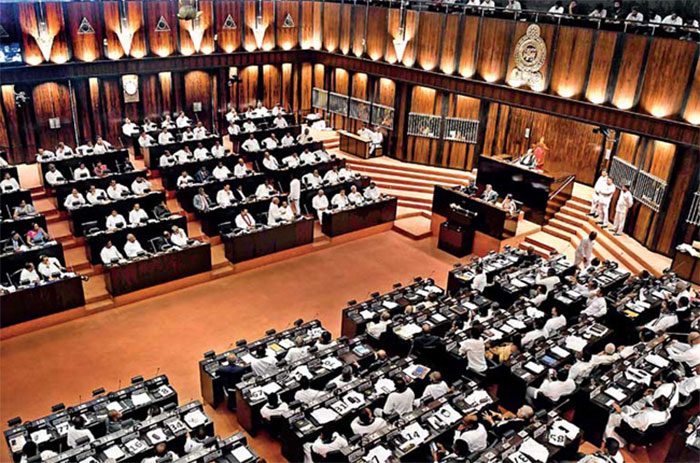ONUR Bill passed without vote

TNA, ACTC vote against it at Second Reading
By Saman Indrajith
The Office for National Unity and Reconciliation Bill was passed in Parliament yesterday without a vote.
However, at the end of the Second Reading of the Bill, All Ceylon Tamil Congress Jaffna District MP Gajendrakumar Ponnambalam called for a division.
The Second Reading of the Bill was passed with a majority of 41 votes.
The vote taken on the Bill received 48 votes in favour while seven MPs voted against it.
TNA and All Ceylon Tamil Congress (ACTC) voted against the Bill.
SJB, JVP and dissident SLPP MPs were not in the Chamber when the vote was taken.
ACTC leader Jaffna District MP Ponnambalam said that his party would call for a division on the Bill and would vote against it. “What is the use of this office? There is nothing new going to come about it. The chairman of the office is to be appointed by the President on recommendation of the Minister of Justice. We know what their views on reconciliation are. They have majoritarian views. They unilaterally decide what they think as reconciliation and then take it to the grassroots and force it down the throat of a reluctant population. This Bill enables only that. This has nothing to do with reconciliation.
This is window dressing to go before the international community to say that we have an office for reconciliation,” Ponnambalam said.
TNA Jaffna District MP Shanakiyan Rasamanickam said that the Bill was nothing but a mere eyewash. “What reconciliation would be there when you are not listening to the concerns of the victims? This Bill does not address the genuine concerns of victims. This is an attempt to mislead the international community and to get the victims’ votes at coming elections,” the MP said.
Justice Minister Dr Wijeyadasa Rajapakshe said MP Rasamanickam has mixed the ONUR Bill with the Truth and Reconciliation Commission Bill.
Badulla District SLPP dissident MP Dilan Perera, during the debate, said that ONUR office had been neglected during the time of Gotabaya Rajapaksa’s presidency. “The first chairperson of ONUR was former President Chandrika Kumaratunga. President Rajapaksa was not against reconciliation but was against Chandrika Kumaratunga. So, this office was neglected because he did not like the chairperson. Passing this Bill would show our commitment towards reconciliation. If implemented to the letter, the provisions of this Bill would be able to put an end to the culture of politics and politicians who capitalize on race, language, religion and caste. These differences perpetuated by identity politics still exist; it is that brand of politics that keeps us down as a nation,” Perera said.

